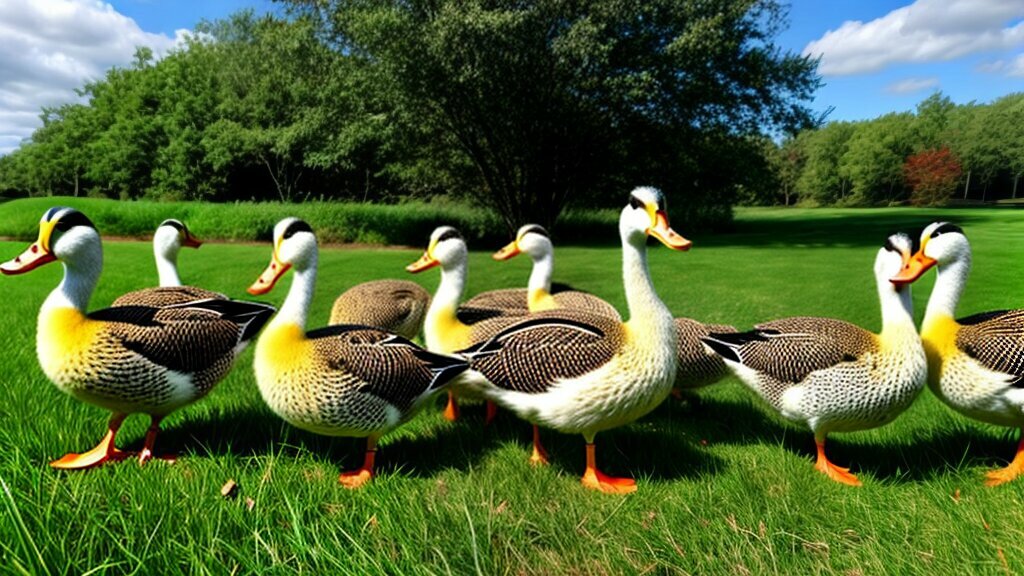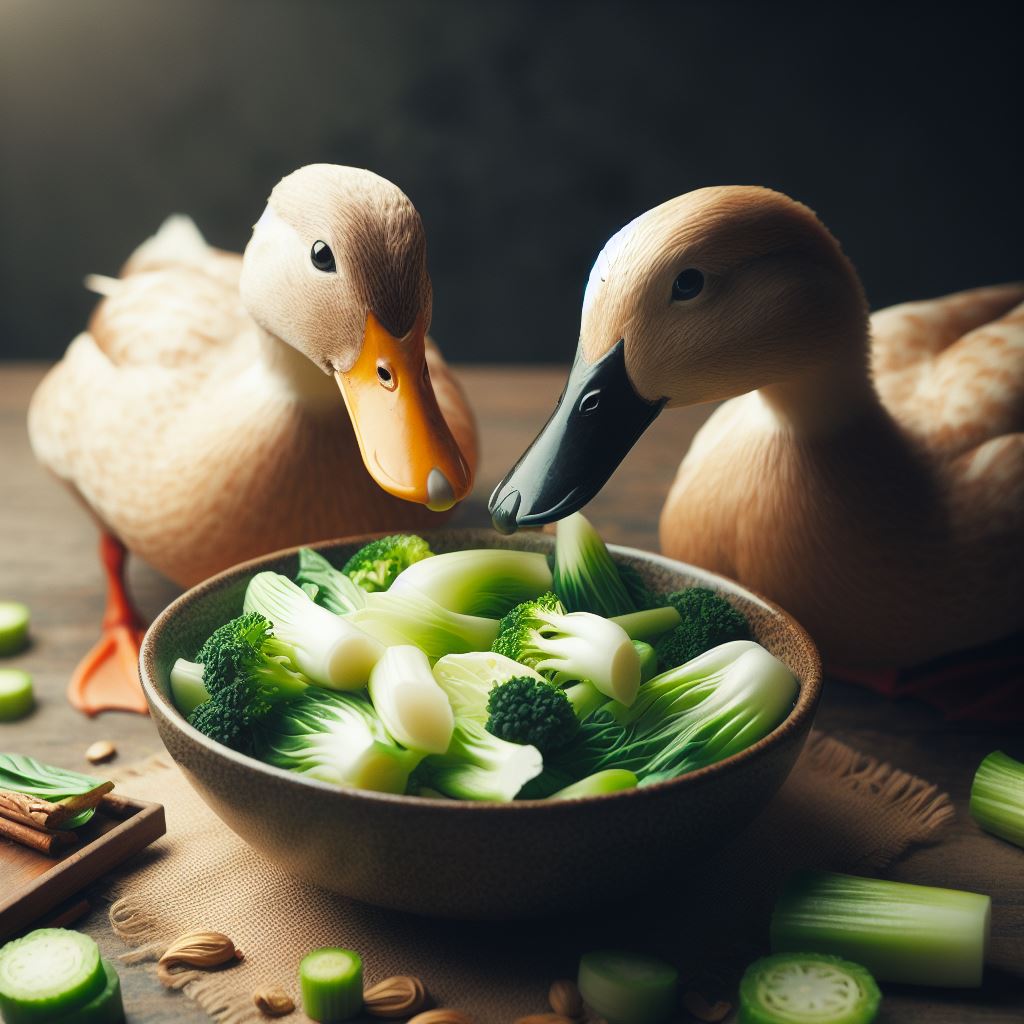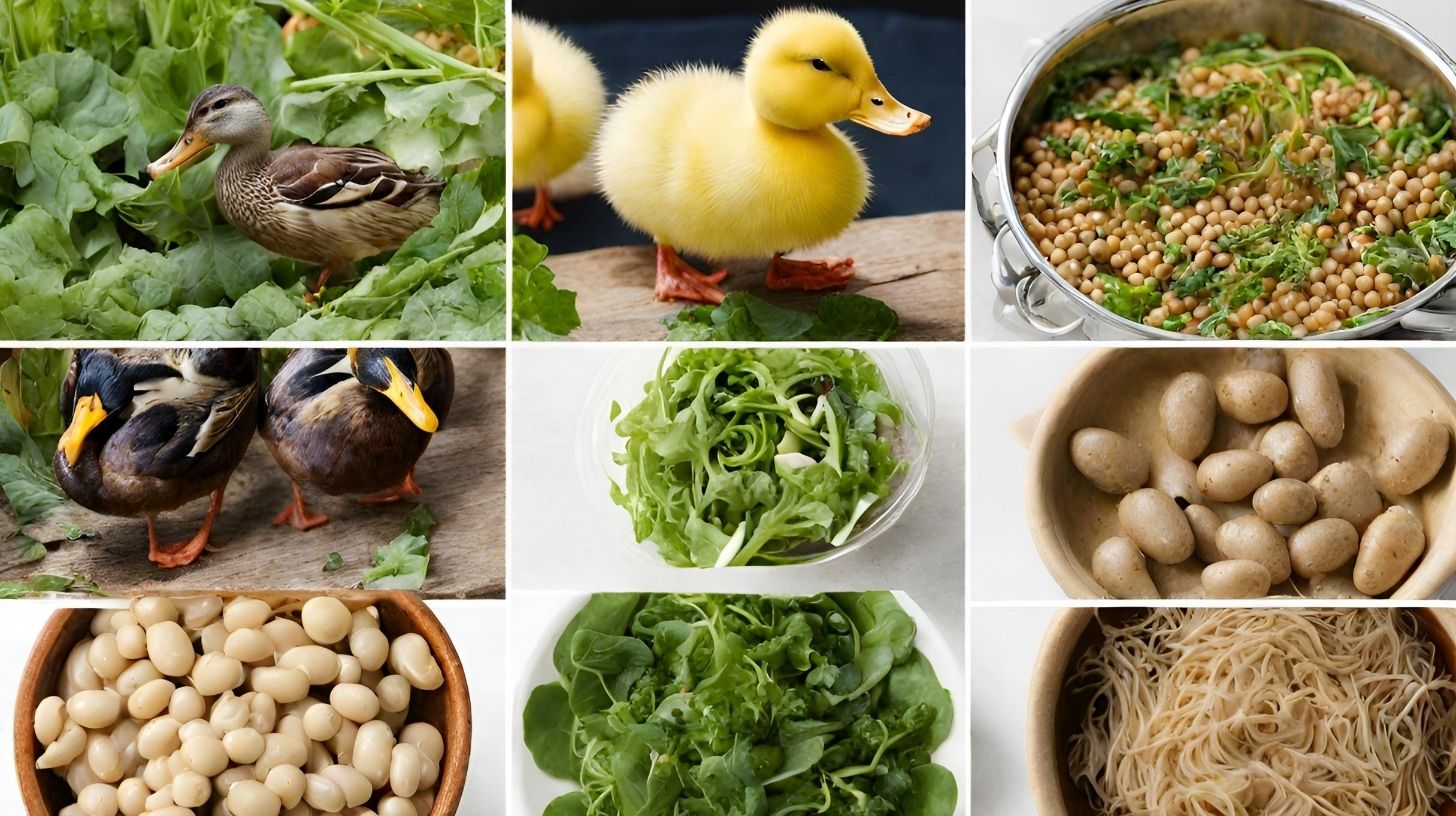Can Ducks Eat Cucumbers?

Table of content:
- Are Cucumbers Toxic to Ducks?
- Nutritional Benefits of Cucumbers for Ducks
- What Types of Ducks Can Eat Cucumbers?
- How to Prepare Cucumbers for Ducks
- How to Feed Cucumbers to Ducks
- How Much Cucumber Can Ducks Eat?
- Potential Risks of Feeding Ducks Cucumbers
- The Bottom Line: Cucumbers Are a Healthy, Nutritious Treat for Ducks
Cucumbers are a common vegetable that are safe and healthy for humans to eat. But what about our feathered friends? Can ducks eat cucumbers too?
The short answer is yes, absolutely! Cucumbers are perfectly safe for ducks to eat and provide some great nutritional benefits.
In this article, we’ll cover everything you need to know about feeding cucumbers to ducks, including:
- Are cucumbers toxic to ducks?
- What nutrients do cucumbers contain that are good for ducks?
- What types of ducks can eat cucumbers?
- How to properly prepare and feed cucumbers to ducks
- How much cucumber to feed ducks
- Potential risks and dangers of feeding ducks cucumbers
Let’s dive in and see why cucumbers make a nutritious and delicious supplemental treat in a balanced duck diet!
Are Cucumbers Toxic to Ducks?
The first question many duck owners have is whether cucumbers are safe for ducks or if they are toxic. Thankfully, cucumbers are completely non-toxic and perfectly healthy for ducks to consume.
Cucumbers belong to the same plant family as squash and melons. The leaves, vines and fruit of the cucumber plant all contain cucurbitacins. These organic compounds give the cucumber a bitter taste but act as a natural pest repellent.
In very large quantities, cucurbitacins can potentially cause indigestion in some animals. However, the amount found in cucumbers themselves is very low and not harmful to ducks.
So you don’t have to worry about cucumbers poisoning your ducks or causing any other health issues. Cucumbers are a duck-safe food that can be fed in moderation.
Nutritional Benefits of Cucumbers for Ducks
Cucumbers not only provide a nice crunchy treat for ducks, they also offer some great nutritional benefits. Here are some of the vitamins, minerals and nutrients found in cucumbers that are good for duck health:
Vitamin K
Cucumbers contain a good amount of vitamin K. This essential vitamin plays several important roles in ducks:
- It is needed for proper blood clotting.
- It supports bone health by improving calcium absorption.
- It may help regulate blood pressure levels.
Vitamin K deficiencies are rare in ducks but providing this vitamin through cucumber treats helps ensure ducks get enough.
Vitamin C
Cucumbers also provide vitamin C. While ducks naturally produce more vitamin C than humans, getting some through diet is still beneficial.
Vitamin C helps:
- Boost immune function in ducks.
- Improve absorption of iron to prevent anemia.
- Support bone, muscle and blood vessel health.
Potassium
The potassium in cucumbers acts as an electrolyte to help ducks maintain normal fluid balance. Supporting electrolyte levels is important since ducks need to consume more water than other types of poultry.
Potassium may also play a role in muscle and nerve function in ducks.
Water Content
One of the biggest benefits cucumbers offer ducks is their high water content. Cucumbers are about 96% water.
Providing ducks with cucumbers is an easy way to increase their fluid intake. Keeping ducks well hydrated supports digestion and organ function.
So while cucumbers don’t offer complete nutrition on their own, their vitamin, mineral and water content make them a healthy supplemental treat.
What Types of Ducks Can Eat Cucumbers?
All types of domestic ducks can safely eat cucumbers. The nutritional benefits of cucumbers apply to the most common pet duck breeds like:
- Pekin
- Rouen
- Call
- Cayuga
- Swedish
- Mallard
- Muscovy
Cucumbers are also fine for younger ducks. Even ducklings can enjoy small, chopped pieces of cucumber as an occasional treat.
Wild ducks such as mallards living near gardens or vegetable crops will also readily eat cucumbers they find.
So no matter if you have pet ducks at home or live near wild ducks, you can feel good offering some crunchy cucumber snacks. They are sure to appreciate it!
How to Prepare Cucumbers for Ducks
Cucumbers are simple to prepare for duck treats. Here are some tips:
- Wash thoroughly – Give cucumbers a good rinse under clean running water. This removes any dirt or residues from the garden.
- Peel – Peeling cucumbers is optional but recommended. The thick skin can be tough for some ducks to digest. Peeling makes the inner flesh easier to eat.
- Cut into pieces – Slice the cucumbers into small, duck-sized pieces. Quarter or halve cucumbers lengthwise then make crosswise slices.
- Remove seeds – Scoop out the watery, seedy core of cucumbers. This makes them more digestible.
- Chop finely for ducklings – For young ducks, chop cucumbers into tiny pieces. This prevents choking.
Always supervise ducklings when feeding to watch they do not struggle swallowing bigger chunks.
Preparing cucumbers this way allows ducks of all ages to enjoy them safely.
How to Feed Cucumbers to Ducks
Once you’ve prepped some duck-friendly cucumber treats, here are some tips for feeding time:
- Feed as a supplement – Cucumbers should not be a main course. Offer them as a supplement to a balanced duck diet.
- Prevent fighting – If feeding multiple ducks, spread the cucumber pieces out along a long trough or wide area. This prevents ducks from fighting over choicest pieces.
- Encourage foraging – You can make eating cucumbers more enriching by scattering pieces in grass or water. Having ducks forage exercises their natural instincts.
- Remove uneaten pieces – Pick up any cucumber leftovers within a couple hours. Leaving cucumbers sitting out can lead to rotting.
By following these tips at snack time, you can provide your ducks a fun, engaging treat they’ll quack about!
How Much Cucumber Can Ducks Eat?
Cucumbers should be fed just in moderation to ducks. They do not provide a complete nutritional profile on their own.
As a general rule, ducks can eat cucumbers:
- 1-2 times per week – Feed cucumbers in limited amounts just once or twice a week.
- 1-2 slices per feeding – At each feeding, offer just a slice or two of cucumber per duck.
- 10% of daily intake – Cucumbers should make up no more than 10% of a duck’s total daily food intake.
Following these portion guidelines will allow ducks to reap the benefits of cucumbers without overdoing it.
Potential Risks of Feeding Ducks Cucumbers
While cucumbers are safe overall for ducks, overfeeding them does come with some risks:
- Nutritional imbalance – Too many cucumbers could lead to vitamin and mineral deficiencies long-term if they replace nutritionally complete feed.
- Weight gain – The high water content of cucumbers can quickly fill up ducks without providing much fiber or protein. This could contribute to obesity.
- Digestive upset – Eating too much cucumber at once could cause loose droppings or diarrhea. Always introduce new treats slowly.
- Choking hazard – Cucumbers should be chopped to avoid ducks choking on large pieces. Supervise ducklings especially.
However, these risks are easily avoided by feeding cucumbers in moderation. Offer small portions just occasionally as a supplement to a balanced duck diet.
The Bottom Line: Cucumbers Are a Healthy, Nutritious Treat for Ducks
At the end of the day, ducks can absolutely eat cucumbers as an occasional supplemental treat.
Cucumbers provide vitamins, minerals and water content that offer health benefits to ducks. All types of domestic and wild ducks can safely enjoy this crunchy vegetable.
By preparing cucumbers properly and feeding them in moderation, duck owners can provide a fun, healthy enrichment activity for their flock. Just be sure not to overfeed.
So next time you’re prepping a salad for yourself, go ahead and slice off a few pieces of fresh cucumber for your feathered friends. Ducks will appreciate the cool, refreshing snack on a hot day!
Welcome. I’m Adreena Shanum, the proud owner of this website, and I am incredibly passionate about animals, especially poultry. I founded adreenapets.com as a labor of love, stemming from my desire to share my knowledge and experiences with poultry enthusiasts worldwide.




